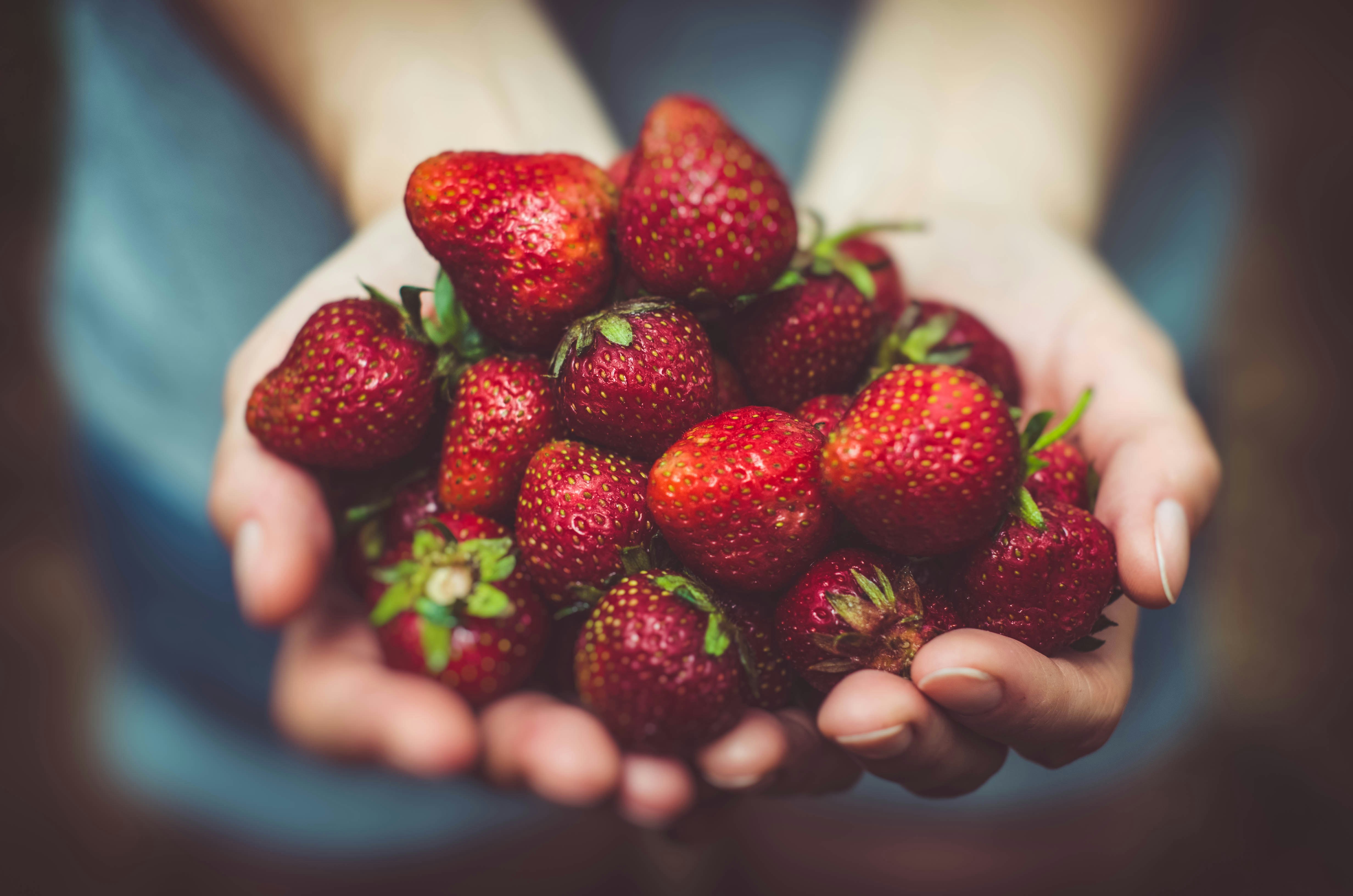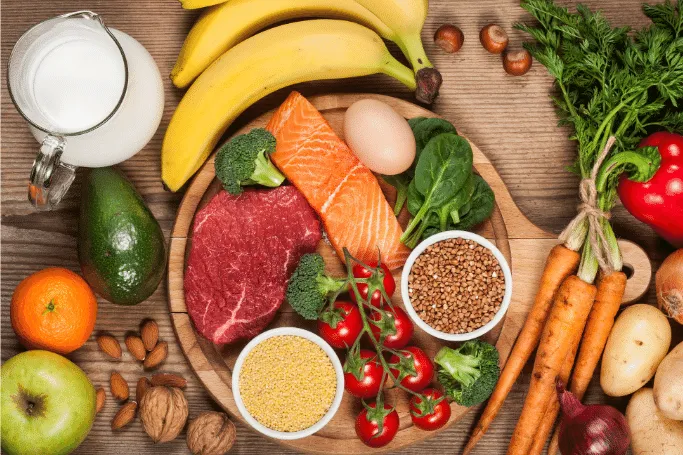The Best Foods for the Brain

A growing body of research demonstrates that some foods have the nutritional profile to support preserving mental clarity.
According to data from the Centers for Disease Control and Prevention, cognitive decline affects 1 in 9 persons in the United States, which is higher than you may assume (CDC). Luckily, research shows certain daily activities can decrease your risk for diseases like dementia - including paying attention to what goes into your grocery cart and on your plate.
According to Bonnie J. Kaplan, PhD, a research psychologist and coauthor of The Better Brain: Overcome Anxiety, Combat Depression, and Reduce ADHD and Stress with Nutrition, "An overall dietary pattern of consuming whole foods from a variety of food groups and considerably less ultra-processed ones delivers the best bang for your buck when it comes to improving brain health outcomes."
The typical Western diet contains a significant amount of ultra-processed foods, which are typically packaged snacks and drinks with high levels of sodium, added sugars, and saturated fats. This is concerning because ultra-processed foods appear to be a major contributor to the risk of cognitive decline. According to a study published in July 2022 in Neurology that followed 72,083 adults 55 or older for an average of 10 years, replacing just 10% of the ultra-processed foods in a person's diet with the same amount by weight of unprocessed or minimally processed foods was associated with a 19% reduction in dementia risk. According to Elizabeth Somer, RD, the Salem, Oregon-based author of Food & Mood, "poor diets not only fail to offer vital brain-protecting nutrients, but also add insult to injury by overwhelming the brain with toxic compounds."
So obviously, eating is one of the most critical levers we can pull when it comes to brain health. Some foods have the chemicals to assist keep your brain operating properly, while others lack any of the nourishment necessary to bolster mental health. And some of the edibles that can help reset your brain's biological clock and elevate your mood may surprise you. Here’s your cheat sheet for the meals (and one drink) that you should remember to add to your grocery list to assist support your noodle.
Canned Sardines
One of the best sources of long-chain omega-3 fatty acids in the grocery store are these affordable canned fish, which, according to some studies, may delay age-related cognitive decline. In a study published in the journal Nutrients including 6,587 adults, it was discovered that eating fatty fish, such as sardines and salmon, and consuming moderate amounts of omega-3 fatty acids from marine sources were linked to a lower prevalence of depressive symptoms. And a study that appeared in The BMJ in July 2021 found a link between higher omega-3 intake and fewer, less severe headaches in people who have these skull crushers.
Dr. Kaplan refers to lipids in the gray matter and adds, "Basically, we are fat heads, as our brains are 60% fat." She continues, "So the cell walls in our brains need healthy fats, including omega-3s, to function optimally." She adds that increasing the proportion of omega-3 to omega-6 fats in our diets can help reduce inflammation in the brain and make it simpler to maintain better cognitive functioning. “We don’t yet know the perfect amount of seafood to eat for brain health, but a decent advice is to aim for two servings of fatty fish a week,” Kaplan adds.
Sardines in cans are also a good source of vitamin D. According to nutrition data from the U.S., a 3.5-ounce (100-gram) serving has 193 IU, or 24 percent of the daily recommended requirement. Ministry of Agriculture (USDA). Even after taking into consideration a number of dementia risk variables, researchers discovered that older people who consumed the most vitamin D from food were less likely to experience dementia than those who consumed the least. The findings were published in September 2020 in Alzheimer's & Dementia. Vitamin D can be seen as crucial along with all of the other nutrients, but we can't expect to optimize brain function with just one vitamin, adds Kaplan. Any nutrient deficiency, including vitamin D deficiency, is never going to be helpful for brain function.
Few Americans consume enough vitamin D from food or sunlight, therefore it may be a good idea to include canned sardines more frequently in your diet. Try the miniature swimmers in sandwiches, spaghetti dishes, and frittatas.
Strawberries
Could adding strawberries to your yogurt, cereal, or smoothies, or blending them up, help shield your brain from Alzheimer's? RUSH University researchers suggest that might be the case. They found that a substance called pelargonidin, which is plentiful in strawberries (more so than other popular berries), may be linked to fewer neurofibrillary tau tangles in the brain. Their study was published in July 2022 in the Journal of Alzheimer's Disease. This is significant because aberrant alterations in tau proteins are one of the main indicators of Alzheimer's disease in the brain. According to the authors of the study, pelargonidin's anti-inflammatory properties may lessen overall neuroinflammation, which may prevent these tau proteins from becoming misfolded and enable better transport of nutrients and other vital substances from one region of the brain nerve cells to another.
We don't yet have enough data to determine the optimal daily intake of strawberries for brain health, but a daily serving of 12 cup of the juicy, sweet fruit is probably a safe bet.
We should also remember that strawberries and other fruit can be a daily supply of water to help with keeping better hydration. Letting yourself get dehydrated might lead to an immediate reduction in mental functions including working memory and executive function, according to earlier study.
Black Lentils
It's possible that not all lentils are created equal when it comes to safeguarding our brains. According to a study that appeared in the September 2021 issue of Neurology, adults who consumed at least half a serving of foods high in plant-based flavonoids daily had a 20% lower risk of cognitive decline than those who consumed less of these foods. Anthocyanins, which are typically found in blackberries, blueberries, cherries, and black lentils, were also found to have some of the most protective effects against cognitive decline among individual flavonoids, according to the results, which were based on data from 49,493 women and 27,842 men. Somer claims that these substances have antioxidant and anti-inflammatory properties that can improve brain function and delay the onset of cognitive decline.
Additionally, black lentils are a fantastic source of dietary fiber, much like all legumes. The majority of people do not get the recommended daily amount of fiber, which is 28 grams for adults on a 2,000 calorie diet. Food and Drug Administration (FDA), and this deficiency may endanger long-term brain health. A study published in February 2022 in Nutritional Neuroscience indicated that among persons aged 40 to 64 a high-fiber diet may lessen the likelihood of suffering from severe dementia. Particularly for soluble fiber, which is present in lentils, the connection was clear.
Although the exact mechanisms are not known, they may include interactions between the gut and the brain: fiber can control the makeup of the microbiome, a collection of beneficial bacteria found in the human gastrointestinal system, which may then have an effect on inflammation in the brain.
Black lentils are a fantastic addition to salads and soups since they maintain their shape during cooking and have a less earthy flavor than other lentils.
Eggs
Choline is a nutrient you definitely don't want to skimp on when it comes to our brains. The nerve neurotransmitter acetylcholine, which controls memory, and an unique class of fats called phospholipids that are found in cell membranes are both made of choline, according to Somer. She continues, "In fact, acetylcholine underproduction is a hallmark of Alzheimer's disease. According to research reported in the American Journal of Clinical Nutrition, increasing phosphatidylcholine consumption through food may reduce the incidence of dementia and improve cognitive function. Additionally, you should make sure to consume enough choline if you're expecting a child because research indicates that it may help with newborn brain development.
Somer emphasizes that while the body can create choline with the aid of other nutrients like folic acid and vitamin B12, there are occasions when this production is insufficient to support proper brain function. Eggs can be a great help in the situation. Eggs, more specifically the yolks, are just about the second-richest source of choline in grocery stores, after beef liver, according to the National Institutes of Health (NIH). A single egg offers roughly 30 percent of the daily intake for brain-benefiting choline. Eggs were the main source of phosphatidylcholine in the diets of research participants, as noted above. And a study published in the journal Nutrients found that people who regularly eat eggs typically consume twice as much choline as people who don't.
Spinach
All vegetables are healthy, but Popeye's preferred green is one of the best for keeping your mind bright and protecting it. Why? A study published in 2020 in the Journal of Nutrition indicated that spinach is notably high in carotenoid antioxidants like beta-carotene and lutein, which can reduce the risk of moderate or poor cognitive function in women as they age. One study in the Frontiers of Aging Neuroscience journal found evidence to corroborate this claim, showing that middle-aged subjects with greater levels of lutein showed brain responses more comparable to those of younger people. However, don't imagine that regularly consuming large amounts of carotenoids can keep your brain in peak condition. Consumptions of these plant substances, which are present in colorful vegetables including leafy greens, bell peppers, sweet potatoes, and tomatoes, must be continuously high for several years in order to be beneficial.
The ability of these anti-oxidant carotenoids to protect brain cells from oxidative damage, which accelerates aging, may contribute to the mechanism. According to Kaplan, "a higher consumption of carotenoids is also an indication that a person is consuming an overall whole-foods, nutrient-dense diet, which is critical to support brain function." Carotenoids, which are the yellow, orange, and red pigments found in many fruits and vegetables, are the reason why we are advised to eat a rainbow of colors.
In addition to salads, spinach can be blended into pestos, added liberally to frittatas, stirred into stews, curries, and soups at the end of cooking, and blended into smoothies (with other components like fruit, you won't even taste it).
Tempeh
A promising strategy to postpone the onset of dementia and prolong brain aging is to eat more protein. This strategy is beneficial for both maintaining and gaining lean muscle mass. In a study published in the American Journal of Clinical Nutrition, it was found that adult women and men who consumed more protein than carbohydrates over several years showed fewer signs of waning cognitive functioning. The study was intended to test the relationships between yearly protein intake and age-related cognitive decline. It was shown that protein from fish, lean poultry, and legumes was particularly advantageous, but intriguingly, plant protein sources were associated with a greater benefit to the brain than many animal-based proteins. According to Somer, this is probably because plant-based diets are rich in antioxidants, phytonutrients, fiber, vitamins, and minerals that help protect the brain from oxidative damage and provide all the building blocks necessary to create and sustain a well-functioning brain.
According to USDA data, tempeh, which is made from whole soybeans that have been boiled, fermented with a fungus, and then formed into a solid, dense patty, provides 20 grams of protein that is good for the brain per 3-ounce portion. It is a dependable supply of iron as well. Another study indicated that women with healthy iron levels performed better on mental activities and finished them more quickly than did those with low iron status. The results of this study were reported in the American Journal of Clinical Nutrition. The body needs oxygen to function properly, and iron helps move oxygen there, especially to the brain.
Make tacos, salads, grain bowls, and sandwiches using cooked tempeh. For vegetarian chili, vegan meatballs, veggie burgers, or a Bolognese for pasta night, you can shred a block of cheese using a box grater with wide holes. For a vegan kabob that will improve your memory, cut it into cubes and combine it with vibrant veggies.
Avocado
Perhaps an avocado-a-day can help keep the brain doc at bay. A study published in the journal Nutrients discovered that people who consumed avocados every day for six months experienced a significant improvement in their working memory and problem-solving abilities. The high bioavailable quantities of the antioxidant lutein in the creamy fruit, which is consumed and then integrated into our brains, were credited by the researchers as the cause of the advantage. Kaplan explains that "phytonutrients like lutein are plant-based nutrients we derive from whole foods that help our mitochondria produce sufficient amounts of ATP," adding that "Every cell in our body, including in the brain, has mitochondria, which function to produce ATP, the energy molecule, and one of the main functions of ATP is to tamp down excessive inflammation."
Far from being a one-hit wonder, avocado is also a good source of fiber, monounsaturated fat, and folate, all of which can slow down the rate at which your brain ages.
The USDA estimates that one avocado contains roughly 322 calories, so if you plan to add more avocado to your toast and salads as a wonderful approach to help slow down the aging process in your brain, you should be aware of this. So ideally, you would change out some of the calories from less healthy foods for those from avocado, to give your brain a help.
Matcha
We've all heard about green tea's health advantages, but did you know that matcha is green tea's superpowered sibling? Both are made from the Camellia sinensis tea plant, but matcha is produced from leaves that are grown in the shade and ground into a fine powder. This means that, according to research, it contains nutrients and antioxidants that protect the brain from the entire leaf, including flavonoids and phenolics.
According to Somer, since the brain uses more oxygen than any other body part, it is subjected to a significant daily dose of oxygen atoms known as free radicals. “Free radicals are trouble makers, attacking, damaging, and destroying every brain cell in sight, and the wear and tear after decades of free-radical attacks is thought to contribute to the gradual loss of memory and thinking associated with aging.” Fortunately, she says the body has an anti-free-radical army made up of diet-derived antioxidants that deactivate these harmful oxygen fragments. The best source of these antioxidants is colorful fruit, although green tea is also a good option. According to a comparison study from the University of Colorado at Colorado Springs, matcha powder has even higher antioxidant levels than regular green tea.
In addition, L-theanine, a special amino acid found in green tea and matcha, may enhance cognitive function, particularly memory function, according to research published in the Journal of Medicinal Food. However, it is unknown if your matcha latte contains enough L-theanine to provide a lasting cognitive effect. Kaplan did acknowledge that there is some research to suggest that amino acids such as L-theanine, present in green tea, can also have a supportive effect in lowering bouts of anxiety. She does, however, think that substituting tea for sugary beverages in our diets can have a significant positive impact on our brain health. It's advisable to avoid adding liquid sugar to your iced matcha or any other tea beverage because it's particularly bad for your brain and general wellness.
Related posts



